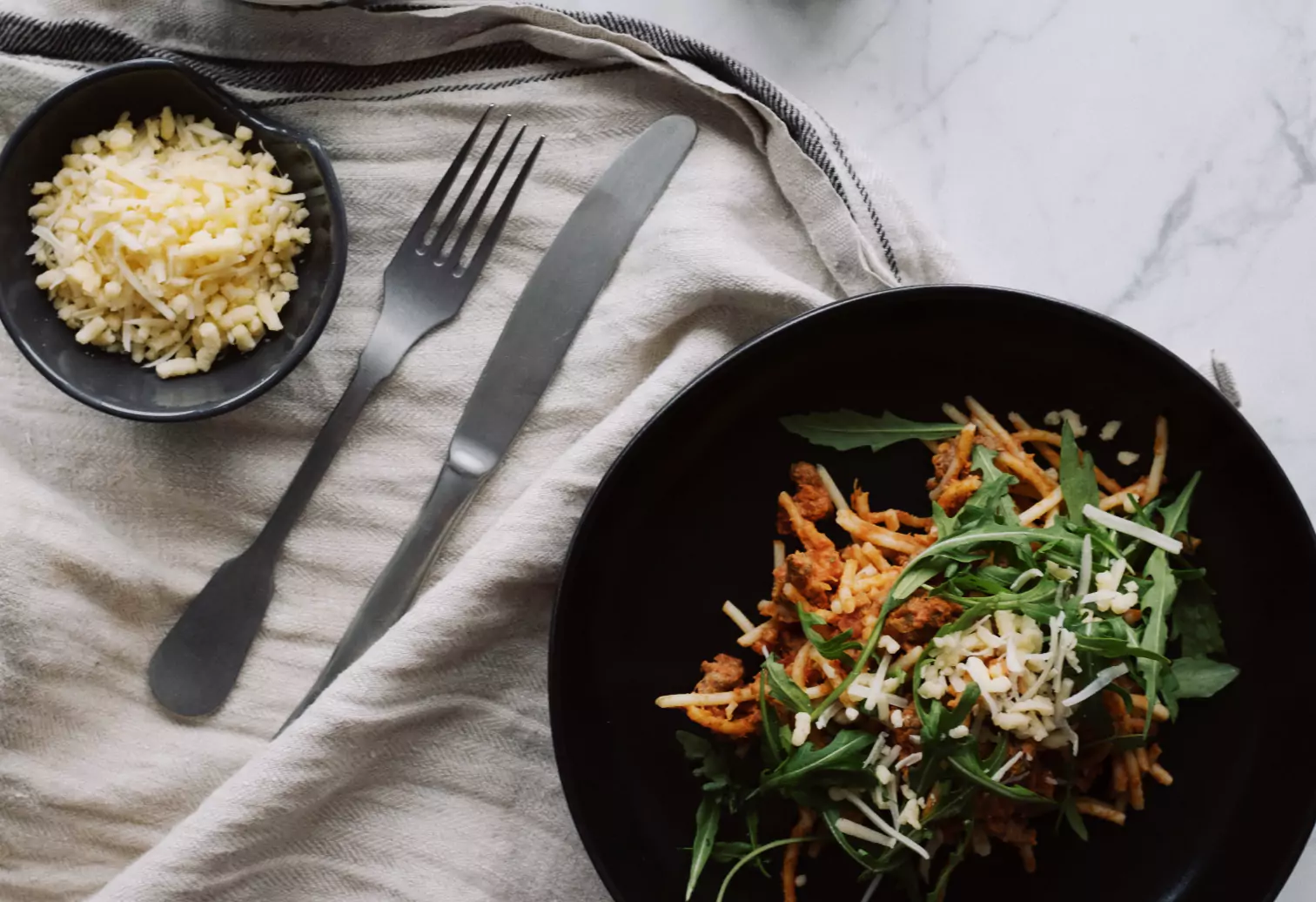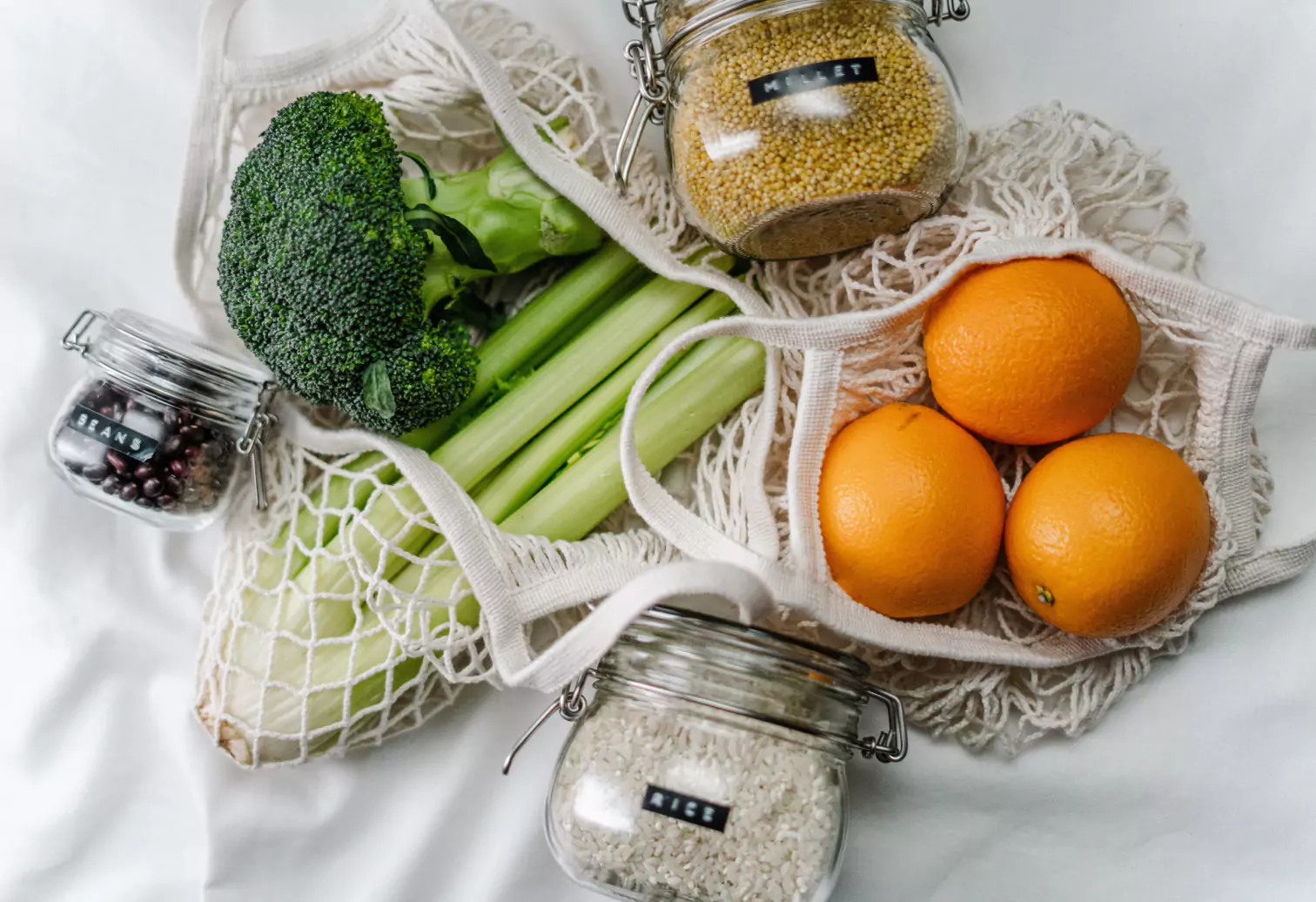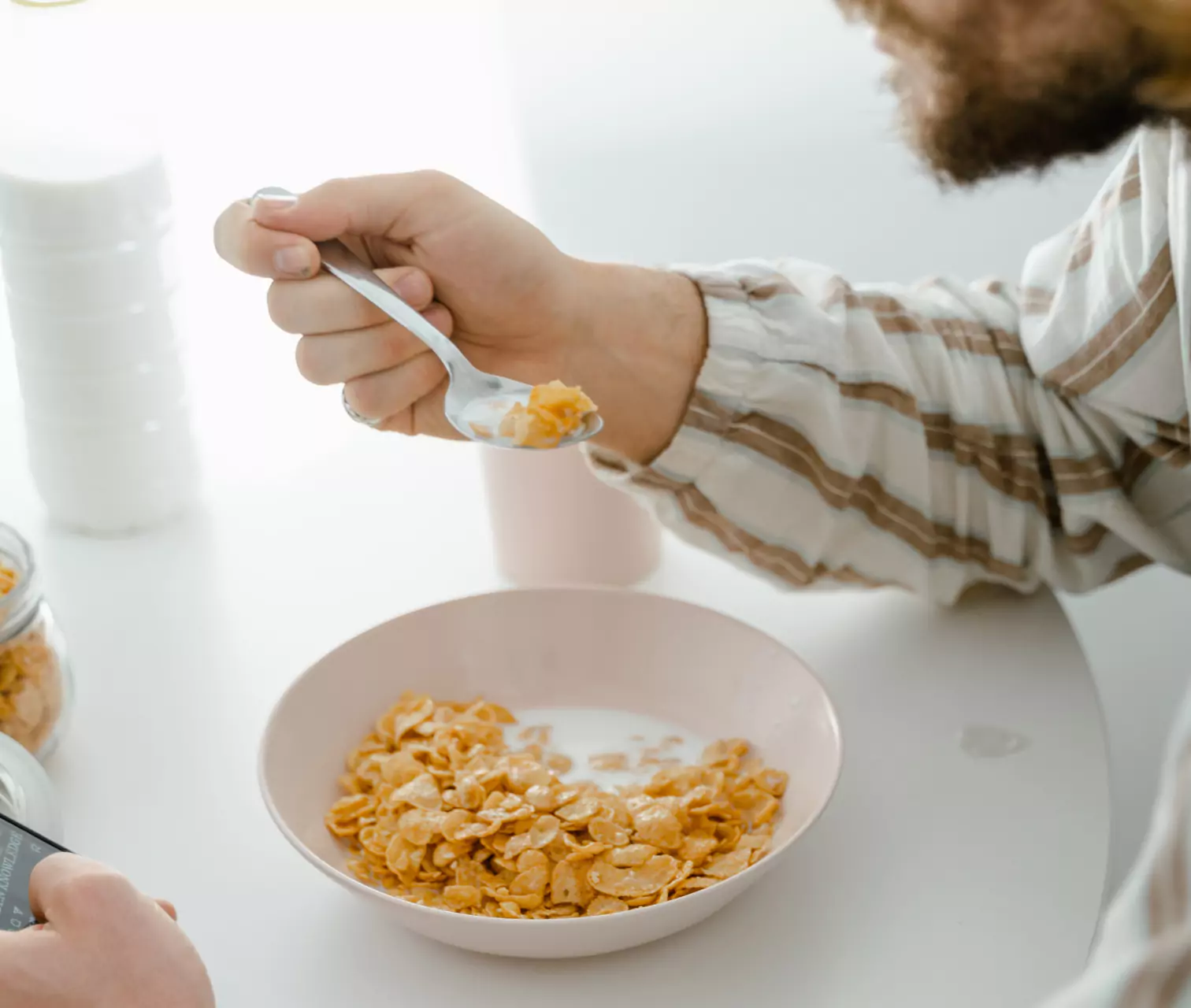11 Simple and Effective Weight Loss Tips for Men

Key Takeaways
Is the route to weight loss different for men and women? While weight loss issues aren’t necessarily gendered, we know some factors (like hormones, PCOS, perimenopause, and menopause) only come into play for women. Similarly, some men may encounter specific challenges while maintaining certain aspects of weight and muscle, especially as they get older.
Understanding Weight Gain in Men
Very simply put, men typically may have more lean muscle mass than women. They also may have more testosterone. So there are a few physiological differences that may mean you need to adjust your weight loss plan differently based on your body.
Even if you’ve been in good shape all your life, surprising weight gain can creep up in your thirties. You may have noticed an increase in belly fat, for example. This is due to a higher tendency for men to accumulate visceral fat around the abdomen, which can raise your risk of health issues like heart disease, stroke, high blood pressure, and other chronic conditions.
While countless weight loss programs, apps, and products promise quick fixes, the key to effective and sustainable weight loss is making small, manageable changes to your daily routine. The good news for men is that losing weight can sometimes be more straightforward. With greater muscle mass and higher testosterone levels, men typically burn more calories at rest and during exercise, making the journey to a healthier weight, or less body fat, more attainable.
Of course, weight loss still requires effort, dedication, and consistency. Whether you’ve opted for weight loss medication, followed a specific diet plan, or worked with a nutrition expert, you still need to do the work, but that’s not as overwhelming as it sounds!
In this article, we’ll share practical weight loss tips for men, focusing on strategies promoting long-term success and overall well-being.
- Nutrisense collects data from continuous glucose monitors (CGMs) that you wear on your body. They collect blood glucose data to determine how the foods you eat and the exercise you are doing affect your body. You can log your food and exercise into the app and use the comprehensive data to determine caloric needs and lifestyle changes to optimize your health.
- If you’re a pen and paper kind of person, all you need is a food journal and a few minutes every day to log your meals. A small notebook and a pen are all you need.
1) Track and Count Your Food Intake

Losing weight can seem challenging, but it doesn't have to be. Technology can help! There's an app and device for everything, from apps that help you maintain a healthy diet or count your calories per day to those that monitor everything from your heart rate to your blood glucose levels.
Want to try a high-intensity workout but don't know if it's right for you? Wondering if a high-protein diet is the right fit for your specific needs? By counting the macros you consume daily, you can lose and maintain your weight healthily and sustainably. Take a look at some of our favorite apps and tools to help you optimize your health.
Best Tracking Tools
- MyFitnessPal is a free app that allows you to track what you eat and drink, how much physical activity you engage in, and how many calories you consume and burn.
- The Nutrisense App helps you understand how your unique body responds to everything from food and exercise to stress, sleep, and other lifestyle factors. Leveraging data from continuous glucose monitors (CGMs), you can see these responses in your blood glucose levels. You can log your food and exercise into the app and use the comprehensive data to determine caloric needs and lifestyle changes to optimize your health.
If you're a pen-and-paper person, you only need a food journal and a few minutes daily to log your meals. A small notebook and a pen are all you need. Consider working 1:1 with an expert to ensure you’re making informed decisions for your health.
2) Drink More Water

Some of the most straightforward advice for losing weight is to drink more water. That's right; plain old H2O can help with your weight loss efforts, so follow the expert advice and increase your water intake.
Drinking enough water and maintaining adequate hydration may help your body's overall metabolism function. Even moderate dehydration can make it harder for your body to lose weight and remain healthy. Dehydration can also negatively impact your blood sugar levels.
Health Benefits of Staying Hydrated
- When you drink enough water, your body is better able to metabolize fat.
- Proper hydration helps keep energy levels up, preventing fatigue and unwanted snacking.
- Water aids your body's natural detoxification processes, helping to eliminate toxins.
3) Eat More Protein

Protein is an essential nutrient for your body. It also plays a significant role in weight loss. It helps promote fullness and can help increase your metabolism. And it’s also essential for maintaining muscle mass as you lose weight.
Some research suggests that around 1.2 to 1.6 grams of protein intake per kilogram of body weight per day and about 25 to 30 grams per meal is beneficial for weight management.
You can get protein from various sources, including meats, poultry, fish, beans, tofu, nuts, and seeds. However, lean protein options are generally best for weight loss as they have less saturated and trans fats, reducing the total number of calories.
Incorporate protein-rich foods into every meal and snack to balance your diet and reach your daily protein goal.
Health Benefits of Adding More Protein to Your Diet
Still wondering why adding more protein to your diet is vital for weight loss? Stephanie Etherington, RDN, CD, CDCES, explains, “A balanced diet that includes plenty of protein can help you optimize your glucose levels and prevent conditions like diabetes.”
Protein also helps to keep you feeling fuller longer, making it a crucial part of any weight loss plan. When selecting protein foods, choose high-quality options, like grass-fed beef, free-range pasture-raised chickens and eggs, and wild-caught fatty fish like salmon. We've also seen that having protein before your carbohydrates can help improve your glucose response to that meal.
A more stable glucose response can contribute to higher levels of satiety. So, a lower likelihood of you experiencing an energy "crash" after eating, and you'll be less likely to reach for that quick pick-me-up (i.e., the chocolate or candy at your desk).”
4) Eat More Fruits and Vegetables

This one may seem obvious, but we're going to point it out anyway. Eating more whole fruits and vegetables is a simple, effective way to lose weight. Most fruits and vegetables are low in calories and high in nutrients, so you can fill up without packing on the pounds.
Fruits and vegetables are packed with fiber, and fiber helps to promote satiety and fullness, so you eat less overall. Fruits and vegetables are also low in calories, so they can help you create a calorie deficit. You'll burn more calories than you're taking in, helping with weight loss.
What's more, produce is full of water, which helps keep you hydrated, another critical component of losing weight. They contain essential vitamins and minerals that your body needs to function correctly, and antioxidants that have been linked to weight loss.
Health Benefits of Eating More Fruits and Vegetables
Want a quick lowdown on some of the benefits of eating fruits and vegetables? Here are a few from registered dietitian, Marie Funk, MS, RD, LDN.
- Packed with antioxidants to clean up free radicals in the body, reducing the risk of disease
- Contain loads of micronutrients that support bodily functions and wellbeing
- Full of fiber and prebiotics that feed and support a healthy gut microbiome, feelings of fullness, and glucose control
5) Eat More Fiber-Rich Foods

You probably know that fiber keeps your digestive system regular. Fiber is a carbohydrate that the body can't digest, meaning it doesn't break down into energy and sugars like other carbohydrates.
As we mentioned earlier, it also keeps you full for longer. It also helps your body absorb water and slow its glucose uptake from carbs and sugars in your diet. When you include more high-fiber foods in your diet, you'll be less likely to snack between meals, reducing your overall calorie intake and helping with weight loss. And since fiber can help mitigate or balance blood sugar levels, it can help with weight loss overall. Avoiding high blood sugar fluctuations may help prevent excessive cravings or overeating.
Health Benefits of Eating More Fiber-Rich Foods
There are so many added benefits to eating more fiber-rich foods. Here are some more from expert nutritionist Elizabeth McKinney, CNS, LDN:
- Promotes a feeling of satiety, which can further support weight control/weight loss.
- Supports lower, more stable postprandial glucose responses.
- Increases bulk in the intestinal tract, which helps remedy constipation.
Fermentable fibers and prebiotics produce short-chain fatty acids important for a healthy gut microbiome.
6) Avoid Eating Refined Carbs

Refined carbs are carbohydrates that have been processed and had their fiber and other nutrients removed. This makes them quicker to digest, which can cause spikes in blood sugar levels. Eating too many refined carbs can lead to weight gain and other health problems over time.
Limiting refined carb intake found in processed foods like pastries, white bread, and white rice can be a great place to start. These foods have been stripped of their fiber and nutrients, making them less filling and more likely to cause spikes in blood sugar levels.
Foods to Replace Refined Carbs
Refined carbohydrates can be difficult to avoid since they're in everything from white rice to white bread. Here's what Stephanie Etherington, RDN, CD, CDCES, suggests doing.
“I love having legume-based pasta like chickpea, lentil, or edamame pasta. There are also options like spaghetti squash instead of white pasta, quinoa (a great source of protein and fiber) over white rice, and sourdough bread over white bread.
Sourdough has lactic acid, contributing to its distinctive taste, and can also help moderate a glucose response.”
7) Eat Meals at a Slower Pace

Eating at a slower pace could help you lose weight more efficiently. When you rush through your meals, you're more likely to overeat and consume more calories than necessary. Slowing down will allow your body to register that it's complete, preventing you from overeating.
Eating mindfully lets your brain process when it is full. You may also enjoy your food (and your company) more when you take your time eating and chewing your food.
8) Moderate Alcohol Consumption
For most people, there's nothing wrong with having a cold beer on a hot day or indulging in a glass of wine with meals. But if you are trying to shed weight, alcohol may be hindering your goals.
It's because alcohol is a toxin that your body has to work hard to metabolize. It also contains an abundance of empty calories. If you go out for a drink or two with friends, avoid beers, ciders, and mixed cocktails. These alcoholic beverages contain many calories and usually have a lot of added sugars.
Opt for clear spirits, mix them with citrus and club soda, or enjoy them on the rocks. Remember, you don't need to cut out indulgences completely; a healthy diet is about learning what's right for your needs.
9) Start Lifting Weights Regularly
Are you lifting weights regularly to help with your weight loss goals? If not, you should consider it. While cardio exercises are essential to your calorie-burning workout, lifting weights and resistance training help build muscle mass and boost your metabolism, which is key for long-term weight loss.
Regular weightlifting can promote weight loss in several ways. First, it helps build muscle mass, which burns more calories. Additionally, it can help increase your basal metabolic rate (the number of calories your body burns at rest) and raise your levels of fat-burning hormones like adrenaline and testosterone.
Sample Workout Plan
Our experts suggest starting with three sets of five to ten reps of each workout. Choose an intensity level that allows you to do at least five reps with perfect form. Ideally, focus on having a high enough intensity to hit failure by the time you hit 10 reps. Once five to ten reps of this intensity become less challenging, you should switch to a higher intensity.
Progressing up a difficulty level is a signal that you're growing muscle! Here's a sample plan for exercises to include throughout the week:
Monday: Work on your Chest and Back
- Plank Raise and Tap Crunch
- Military Press
- Superman
- Dumbbell Lateral Raise
- Hip Hinge (AKA Good Mornings)
Wednesday: Leg Day
- Lunges
- Squats
- Side Lunge
- Glute Bridge
- Donkey Kick
Friday: Work on Your Shoulders and Arms
- Overhead Triceps Extension
- Shoulder Press
- Curtsy Lunge with Biceps Curl
- Plank Up-Down
- T-Lifts
10) Get Eight Hours of Sleep Daily

It's no secret that a good night's sleep is vital for overall health, but did you know it's also crucial for weight loss? Studies have shown that people who get adequate sleep every night are likelier to lose weight and keep it off than those who don't.
However, according to the Centers for Disease Control and Prevention (CDC), one-third of Americans don't get enough sleep. It turns out you may need more zzz's than you think. The National Heart, Lung, and Blood Institute recommends that adults get seven to nine hours of restful sleep per night, so prioritize those hours!
11) Consider an Intermittent Fasting Diet

Intermittent fasting is a pattern of eating that alternates between periods of fasting and eating. It's an approach to eating that may help you burn fat, lose weight, and improve some of your health metrics. This approach is more about when you eat, although what you eat is still important.
Though it may seem intimidating to change your eating patterns, intermittent fasting is safe and effective for most people. It can help you lose weight by burning more calories and reducing your appetite.
Benefits of Intermittent Fasting
- By restricting your eating to certain times or days of the week, you can create a calorie deficit that may lead to weight loss.
- Studies have shown intermittent fasting can help you lose weight and body fat while improving your insulin sensitivity.
FAQs
We asked our team of board-credentialed weight loss experts to answer some frequently asked questions about weight loss for men. Here are some quick takeaways.
How can a man lose weight fast?
Quick weight loss is not always sustainable, so short-term solutions may not be the best option. But if you’re in a weight loss plateau or struggling with stubborn weight, you may want to discuss options like GLP-1s with a health professional. If you fit the criteria, a doctor may suggest taking Ozempic, Mounjaro, or similar weight loss medications, a healthy diet, and an exercise plan.
Remember, there’s no one-size-fits-all when it comes to weight loss. Whether it’s low-carb diets or intermittent fasting and weightlifting, you need to find what works for you. Talking to an expert is an excellent way to find your perfect plan!
How can I stay motivated to lose weight?
Here are a few tips to help you maintain motivation during your weight loss journey:
- Set realistic and achievable goals instead of trying to make drastic changes all at once.
- Find workouts and physical activities you enjoy so they feel less like a chore.
- Surround yourself with a supportive community or find an accountability partner.
- Celebrate small victories and progress along the way.
- You can get support from a registered dietitian, or use a support app. Consider a program like Nutrisense to receive personalized guidance and the tools you need to support your unique weight loss goals.
- Focus on overall health and wellness rather than just weight loss numbers on a scale.
How can I maintain my weight loss?
Sustainable weight loss maintenance requires a combination of healthy eating, regular exercise, and lifestyle changes. Some tips to help you maintain your weight include:
- Continuing to track food intake and physical activity.
- Prioritizing whole, nutrient-dense foods in your diet while allowing for occasional indulgences.
- Increasing your activity level and incorporating strength training and aerobic activity to maintain muscle mass.
- Monitoring your stress levels and finding effective coping mechanisms.
- Seeking support from a health professional or accountability partner if needed.
Why is it so hard for some men to lose weight after 40?
Losing weight after 40 can be a challenge, regardless of your gender, due to several factors. Your metabolism slows down as you age, making it harder to burn calories efficiently. Lower hormone levels, especially testosterone, can lead to more fat storage and less muscle mass. Plus, managing weight can seem more challenging as you age since you likely assume more responsibilities and stress and may have less time to focus on daily physical activity.
But don’t worry—weight loss is still achievable! Focus on our tips above to ensure you’re on the right track.
How do you jumpstart weight loss after 40?
Being stuck on your weight loss journey could be due to a simple issue, such as not getting enough sleep or working with your body as it changes with age. Struggling with fat loss could also indicate an underlying problem, like type 2 diabetes or insulin resistance.
Start with some minor lifestyle tweaks. For example, sleeping fewer than 5 hours can significantly reduce your insulin sensitivity, leading to rapid weight gain. Stress can do the same. To kickstart your weight loss journey, prioritize quality sleep and stress management. Ensure you stay hydrated, consume nutrient-dense foods, and incorporate regular movement—even a 10-minute walk counts. Add strength training to your exercise regimen.
And if you’re still unable to shift the pounds, work 1:1 with an expert, like a registered dietitian or nutritionist trained to help with weight loss.
Find the right Nutrisense programto turn insight into progress.
Set Weight Loss Goals for Your Unique Needs with Nutrisense
Whether you're trying to lose weight or improve an existing weight loss maintenance routine, expert guidance and the right weight loss plan can help. At Nutrisense, we understand how support and resources can help an individual more likely reach their health goals.
With the Nutrisense program, our team of credentialed dietitians and nutritionists is ready to offer additional support and guidance, helping you confidently achieve your goals.
Ready to take the first step? Start with our quiz to see how Nutrisense can support your health.
Go Beyond Glucose Data with Nutrisense
Your glucose can significantly impact how your body feels and functions. That’s why stable levels are an important factor in supporting overall wellbeing. But viewing glucose isn't enough. Nutrisense, you’ll be able to learn how to use your body's data to make informed lifestyle choices that support healthy living.
One-to-one coaching
Sign up to access insurance-covered video calls to work with a glucose expert: a personal registered dietitian or certified nutritionist who will help tailor your lifestyle and diet to your goals.
Monitor and measure what matters
With the Nutrisense CGM Program, you can monitor your glucose with health tech like glucose biosensors and continuous glucose monitor (CGM)s, and analyze the trends over time with the Nutrisense App. This will help you make the most informed choices about the foods you consume and their impact on your health.
Find your best fit
Ready to take the first step? Start with our quiz to find the right Nutrisense program to help you take control.

Stephanie Etherington is a Washington-based Registered Dietitian Nutritionist (RDN), Certified Dietitian (CD), and Certified Diabetes Care and Education Specialist (CDCES). She specializes in endocrine disorders, extended fasting, and weight management. She earned her Bachelor of Science in Nutrition Management with a concentration in Exercise Science from Rochester Institute of Technology. She went on to complete her Dietetic Internship at California Polytechnic State University with a focus on Community Nutrition. When not nerding out over glucose trends, you’ll find Stephanie hiking in the foothills of the Cascades or belting out show tunes.




